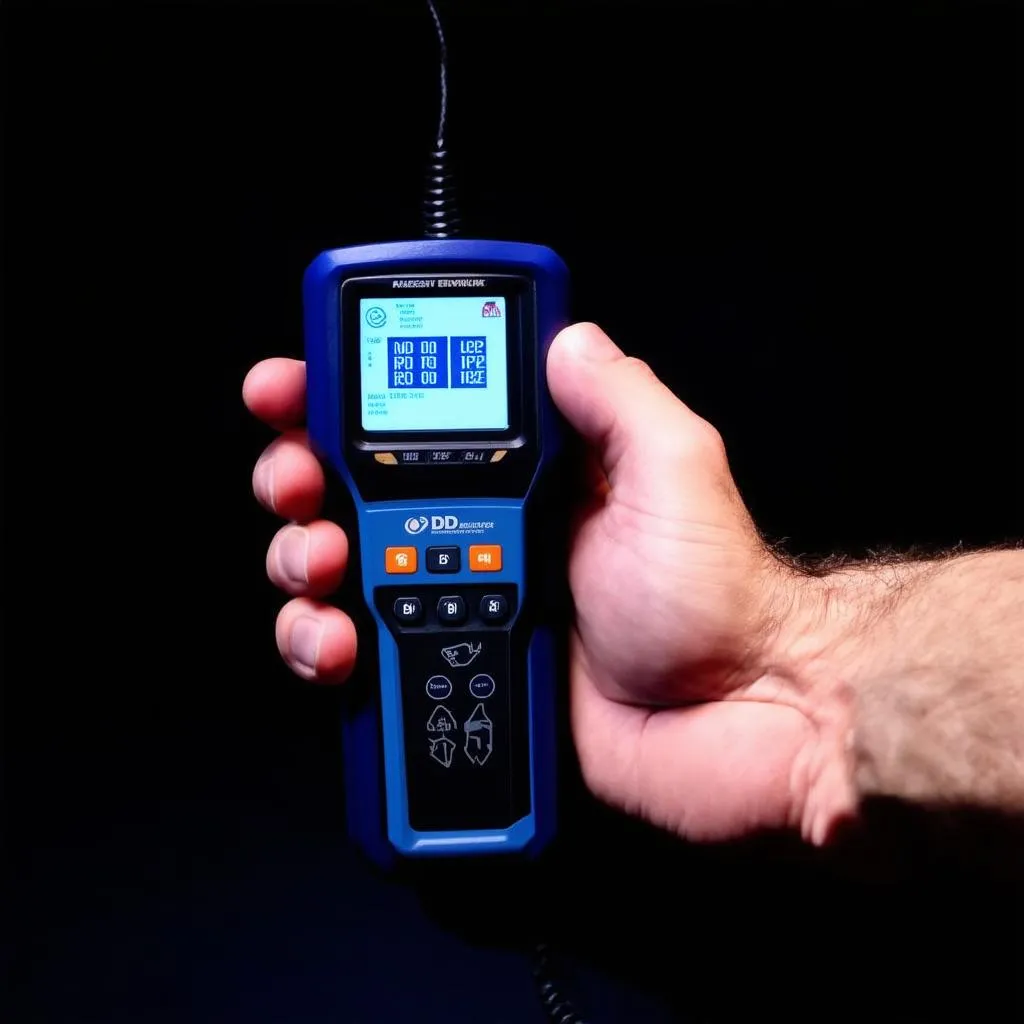Have you ever looked at your car’s dashboard when a warning light suddenly popped up and felt a wave of panic wash over you? Don’t worry, you’re not alone. It can feel like your car is speaking a foreign language. This is where Obd Vehicle Diagnostics comes in – it’s like having a real-time translator for your car’s brain.
What is OBD Vehicle Diagnostics?
OBD stands for On-Board Diagnostics. Think of it as your car’s central computer system. It constantly monitors various systems within your vehicle, from engine performance and emissions to airbag status and even your anti-lock brakes. When something isn’t quite right, the OBD system triggers that dreaded warning light on your dashboard and stores a specific code to identify the issue.
Unlocking the Secrets: How OBD Diagnostics Work
Imagine you’re a mechanic trying to pinpoint a problem in a vast network of car parts. OBD diagnostics acts like a roadmap. Here’s how it works:
-
The Warning Light: This is your cue that something needs attention. It could be a check engine light, ABS light, or any other indicator related to your car’s systems.
-
Connecting the Scanner: A specialized tool, called an OBD scanner or code reader, is plugged into your car’s OBD-II port. This port is usually located under the dashboard on the driver’s side.
-
Reading the Codes: The scanner retrieves the trouble codes stored in your car’s computer. These codes are like puzzle pieces that, when deciphered, tell you the nature and location of the problem.
-
Interpreting the Results: This is where things get interesting. While the codes themselves provide a starting point, proper interpretation often requires knowledge of car mechanics, experience, and sometimes, even consulting manufacturer-specific databases.
 OBD Scanner Connection
OBD Scanner Connection
Why is OBD Vehicle Diagnostics Important?
OBD diagnostics offers a plethora of benefits for car owners and mechanics alike:
- Early Detection: Identifying problems early on can save you from costly repairs down the road. Remember the old adage, “A stitch in time saves nine”?
- Accurate Diagnosis: No more playing guessing games with car trouble. OBD diagnostics helps pinpoint the exact issue, eliminating unnecessary repairs and saving you money.
- Improved Performance: By addressing issues promptly, you can ensure your vehicle runs smoothly, efficiently, and safely.
- DIY Empowerment: For the more technically inclined, OBD scanners have become increasingly user-friendly, allowing you to perform basic diagnostics and troubleshoot minor problems yourself.
Beyond the Basics: Advanced OBD Features
Modern OBD systems go beyond simple code reading. Some advanced features include:
- Live Data Stream: This allows you to view real-time data from various sensors, giving you a dynamic picture of your engine’s performance, emissions, and other parameters.
- Bi-Directional Control: This feature allows mechanics (and advanced users) to interact with the car’s systems, running tests and even controlling certain components for troubleshooting purposes.
Common OBD-Related Questions
Here are some frequently asked questions about OBD vehicle diagnostics:
-
Can I use any OBD scanner on my car? While most cars manufactured after 1996 use the standard OBD-II protocol, some European makes and older vehicles may require specialized scanners.
-
What if the check engine light turns off on its own? Even if the light goes off, the code remains stored in the computer. It’s best to get it checked to rule out any underlying issues.
-
Do I need to be a mechanic to use an OBD scanner? Basic OBD scanners are relatively user-friendly. However, proper interpretation of the codes and diagnosis often requires mechanical knowledge.
-
Can OBD diagnostics detect problems beyond the engine? Absolutely! OBD systems monitor various systems, including transmission, brakes, airbags, and emissions control.
 OBD Scanner Error Code Display
OBD Scanner Error Code Display
OBD Vehicle Diagnostics: A Glimpse into the Future
As technology advances, we can expect even more sophisticated OBD systems. Imagine receiving real-time diagnostic reports on your smartphone, preemptively scheduling maintenance appointments, and even remotely diagnosing issues before they become major headaches. The future of car care is connected, and OBD diagnostics is leading the way.
Looking for More Car Tech Insights?
Explore our other informative articles on car maintenance, diagnostics, and repair:
Need Expert Help with Your Car Diagnostics?
We’re here to help you decode the mysteries of your car’s computer system. Contact our team of expert automotive technicians via WhatsApp at +84767531508 for 24/7 assistance with all your diagnostic tool needs. Let us help you keep your car running smoothly and safely.

